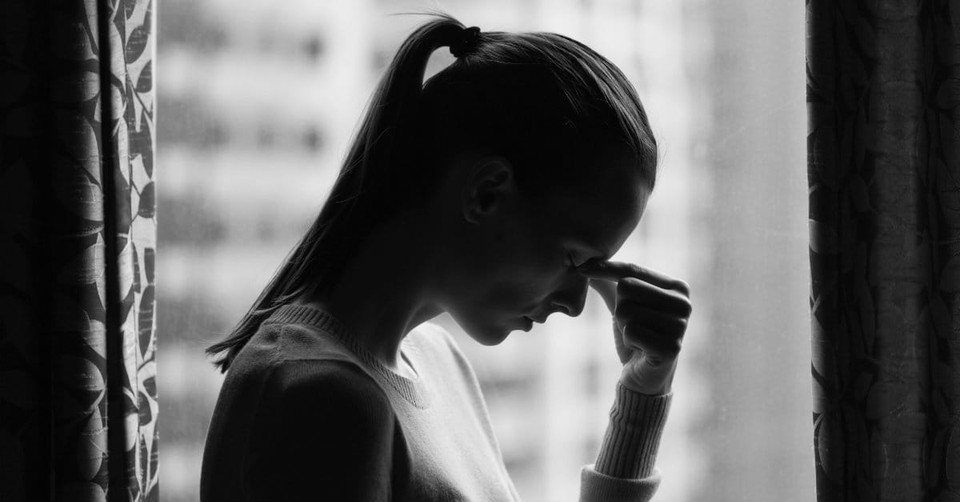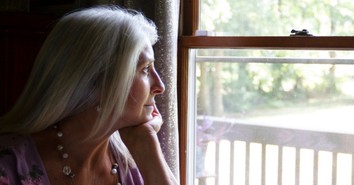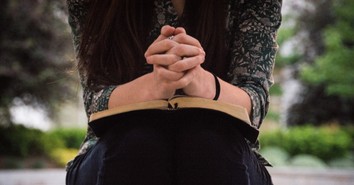The Day My Marriage Died: Healing in the Wake of Divorce

I hadn't expected Saturday, April 7th, 1984 to be extraordinary—but it was. That was the day my marriage died. After discovering that our marriage covenant was broken and my husband wanted out of our union, I started crying that day and didn't stop for a very, very long time.
Ambushed by grief I kept telling myself ,"I must get on with my life." But how? How could I go shopping when I couldn't remember where the store is located? How could I choose a birthday present when my ability to concentrate had disappeared? How does one brush their teeth when they just…can't…find…the…sink?
Friends and family tried to help but I sank deeper into depression. No one seemed to understand the deep sorrow I was experiencing. My church friends lovingly tried to comfort me, but at the end of the day they returned home to a nice cozy family. How could they comprehend this loneliness?
As life seemed to revolve perfectly on it's axis for everyone else, I toppled through the next few months making one mistake after the other in an effort to simply survive. Reading Philippians 4: 6-7 became my life line, "Do not be anxious about anything, but in everything by prayer and petition, with thanksgiving, present your requests to God. And the peace of God, which transcends all understanding, will guard your hearts and minds in Christ Jesus." In prayer I laid at His feet every tear, anxiety, apprehension, dread, and exasperation. I clung to the belief "this too shall pass." In my Bible I have dated and written, "Oh God, when will the pain be over and a purpose clear."
It's normal to try and numb the pain of divorce and get over the grief as quickly as possible. However, God created us to mourn the loss of anything to which we have attached ourselves. A person who does not process the sorrow associated with the death of a marriage is in jeopardy of never completely healing. Jumping into a new relationship, intoxicating with a substance, or becoming consumed with work or children will numb the pain temporarily, but later in life the hidden wound will rear its ugly head. Walking through the grief, not around it, is the only way to fully recover.
Every divorce circumstance is unique. However, for true healing it's necessary to grieve the death of the dream, the death of the covenant and the death of "What should have been." This process takes time, emotionally hard work and often counseling. The problem is most people want to move on and quickly get back to "normal." This impulsive decision often sabotages future relationships.
After 20 years of working alongside those experiencing the trauma of divorce here are a few suggestions.
- Recognize and admit the trauma, shock, and loss of divorce. There is no shame in grieving. It is not a sign of weakness.
- Purchase resources on divorce recovery and seek out a healthy support group, www.divorcecare.org can help.
- Heed the wise counsel of experts who understand the process.
- Recognize that your spouse is no longer your ally. In the early stages guilt and shame may prompt him/her to make promises that are likely to be broken. This doesn't imply acting bitter or obnoxious, merely guard your heart.
- Understand that due to their emotional involvement family and friends may not be the best place to receive instruction.
- Learn how to stabilize your emotions. If you have children it's the greatest gift you can give them. They are grieving too.
- Avoid making major decisions impulsively, seek objective counsel.
- Refrain from dating until you can truly say, "If I'm single the rest of my life, it's Okay."
Divorce is not who I am, it's an event that happened in my life. It's not my identity. God does hate divorce because of the pain it inflicts on His beloved. But he still loves divorced people.
May 11, 2010
Copyright © 2010 Laura Petherbridge. All rights reserved
Laura Petherbridge is an international author and speaker. She is the author of When "I Do" Becomes "I Don't"—Practical Steps for Healing During Separation and Divorce, and a featured expert on the DivorceCare DVD series. Her newest book The Smart Stepmom, is co-authored with Ron Deal. Laura's website is http://www.laurapetherbridge.com/.
Originally published September 15, 2017.





